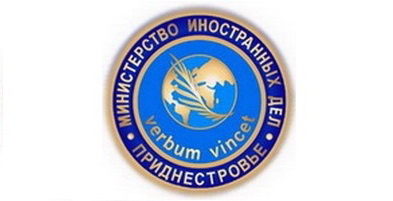The Ministry of Foreign Affairs of Pridnestrovie carefully read some statements on the subject of “frozen conflicts” made by Secretary General of the Council of Europe Thorbjørn Jagland during the plenary session of the PACE on January 29, 2015.
We are overall satisfied with the level of attention given by the Council of Europe - one of the oldest international organizations - to the human rights in the conflict regions including Pridnestrovie.
At the same time there is a certain perplexity caused by some assessment voiced by the Secretary General of the Council of Europe, in particular, he states that the territories where there are the so-called “frozen conflicts” are the “black holes” in terms of human rights protection.
In this context we remind that in 2012 Thomas Hammarberg, Senior UN expert on human rights in Pridnestrovie visited the Pridnestrovian Moldavian Republic several times. In the report prepared following the results of the mission in Pridnestrovie the expert highly appreciated the Basic Law of Pridnestrovie and also stressed the assistance provided by Pridnestrovie’s authorities in his work: “In Pridnestrovie I had full access to all the institutions, to all people with whom we would like to meet and talk, and that was the openness I really appreciated.” The report by Thomas Hammarberg presented a number of recommendations to improve the situation in the field of human rights protection.
Some of the recommendations of the expert, in particular, concerning the liberalization of the Criminal Code were implemented even during the work of the expert on the report.
The most relevant and useful recommendations were accepted for execution through Action Plan to implement the recommendations of Thomas Hammarberg approved by President of the PMR E.V. Shevchuk in November 2013. Work on the implementation of the Action Plan is carried out on a systematic basis under the direct control of the President of the PMR: the PMR's MFA accumulates information on the executed work and submits a report to the President of the PMR.
We believe that such a high representative of the Council of Europe could not, as he focused on the problem of “frozen conflicts”, be unaware of the reports of independent experts and non-governmental organizations. In particular, Pridnestrovie’s openness for the Mission of the competent UN human rights activist has been stressed in a recent report of the International Federation for Human Rights.
In addition, it should be emphasized that a number of international conventions and other universal legal instruments at the legislative level is accepted for execution on the territory of the Pridnestrovian Moldavian Republic as framework norms of law. Among them - the Universal Declaration of Human Rights of 10 December 1948, The Convention on the Prevention and Punishment of the Crime of Genocide of 9 December 1948, International Covenant on Civil and Political Rights of 16 December 1966 and its protocols, European Convention on Human Rights and Fundamental Freedoms of 4 November 1950 and many others.
In this sense, we emphasize the fact that the Convention and other international norms cover the territory of the Pridnestrovian Moldavian Republic to the full.
Ministry of Foreign Affairs of the PMR reiterates its willingness and openness to cooperate with the structures of the Council of Europe on the whole range of issues of mutual interest, including on human rights. However, in our opinion, such irresponsible statements only deepen the chasm of misunderstanding that in the end can hardly help to join efforts to ensure human rights anywhere.
It should also be recalled that often human rights in Pridnestrovie, including the right to freedom of movement and choice of citizenship, fair wages and economic initiative, are restrained to a greater extent in view of the unresolved conflict between the Pridnestrovian Moldavian Republic and the Republic of Moldova and a number of discriminatory measures applied by neighboring states against Pridnestrovie. Such problems are often more complex and not sporadic, the cause of which, in particular, is the stubborn disregard of them by the international human rights organizations. We hope that the Secretary General of the Council of Europe in their future speeches will find the opportunity to mention this dimension of the human rights situation in the conflict regions.








